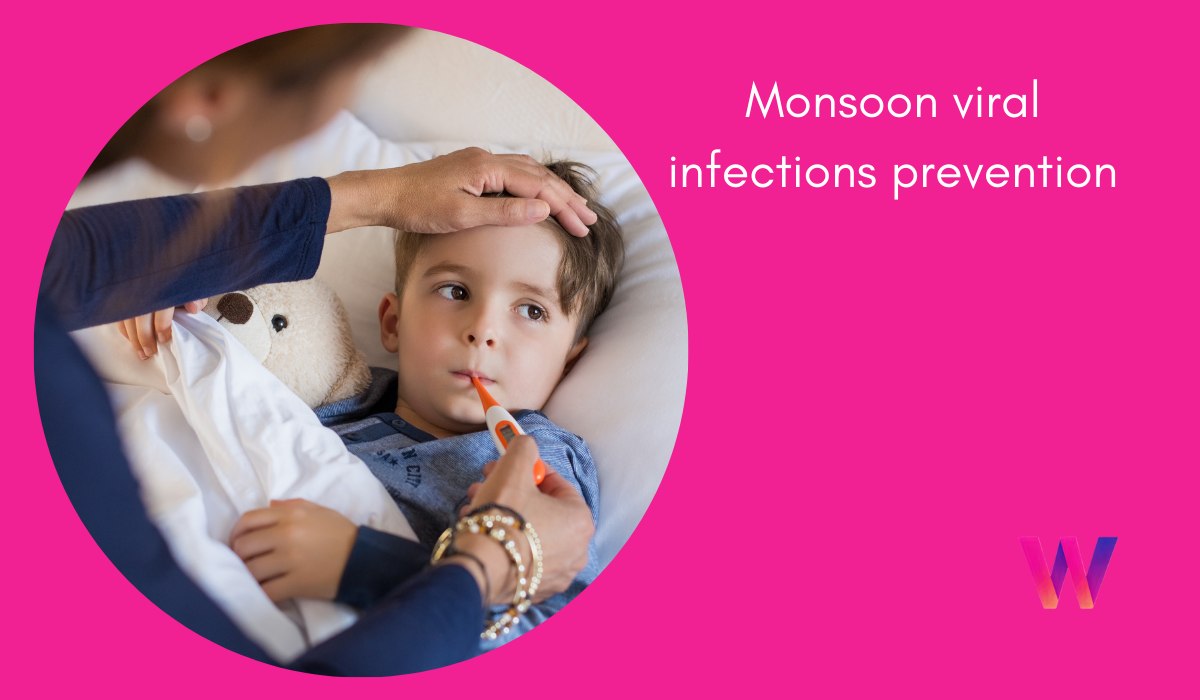The monsoon season brings much-needed relief from the scorching heat, but it also ushers in a host of viral infections. Damp weather, stagnant water, and increased humidity create a perfect breeding ground for viruses and bacteria. Understanding these common viral diseases and how to prevent them is crucial for safeguarding your health during the rainy season.
Beat the Monsoon Blues: A Guide to Boosting Immunity
The first line of defense against monsoon-related illnesses is a robust immune system. Enhancing immunity involves a holistic approach that includes a balanced diet, regular exercise, and stress management.
- Diet: Incorporate immune-boosting foods like citrus fruits, green leafy vegetables, nuts, and seeds. These are rich in vitamins and antioxidants that help the body fight infections. Probiotics, found in yogurt and fermented foods, also support gut health and overall immunity.
- Exercise: Regular physical activity keeps the immune system in check. Even if outdoor exercise is challenging during the monsoon, indoor workouts like yoga, pilates, or home-based cardio can be effective.
- Stress Management: Chronic stress can weaken the immune system. Engage in activities that reduce stress, such as meditation, deep breathing exercises, or hobbies that bring joy and relaxation.
Specific Diseases
Dengue and Malaria: The Monsoon Menace
Dengue and malaria are two of the most feared mosquito-borne diseases during the monsoon.
- Dengue: Caused by the Aedes mosquito, dengue symptoms include high fever, severe headache, pain behind the eyes, joint and muscle pain, and a rash. Preventive measures include using mosquito repellents, wearing full-sleeved clothing, and ensuring there is no stagnant water around the house where mosquitoes can breed. Early detection is key, and medical attention should be sought immediately if symptoms appear.
- Malaria: Spread by the Anopheles mosquito, malaria symptoms include fever, chills, and flu-like illness. Prevention involves similar measures as for dengue. Additionally, using mosquito nets while sleeping and taking antimalarial medications when recommended by a doctor can provide extra protection.
Viral Fever: A Monsoon Mishap
Viral fevers are common during the monsoon, with symptoms like high temperature, body aches, and fatigue.
- Home Remedies: Adequate rest, hydration, and warm fluids like soups and herbal teas can help alleviate symptoms. Over-the-counter medications can reduce fever and pain, but it’s important to consult a doctor if the fever persists or worsens.
- When to Seek Medical Attention: If the fever is accompanied by a rash, difficulty breathing, or if it lasts more than three days, immediate medical attention is necessary.
Waterborne Diseases: Stay Safe This Monsoon
Waterborne diseases such as typhoid, hepatitis A, and cholera are prevalent during the monsoon due to contaminated water sources.
- Prevention: Ensure that drinking water is boiled or filtered. Avoid street food and raw vegetables that might have been washed in contaminated water. Maintaining proper sanitation and hand hygiene is crucial to prevent the spread of these diseases.
Children’s Health
Protecting Your Child from Monsoon Illnesses
Children are particularly vulnerable to infections during the monsoon. Parents should focus on:
- Vaccination: Ensure that your child is up-to-date with all vaccinations, especially those against common monsoon-related illnesses like typhoid and hepatitis A.
- Hygiene Practices: Teach children the importance of washing hands regularly, especially before eating and after playing outside.
- Diet: A nutritious diet rich in fruits, vegetables, and fluids can help strengthen your child’s immune system.
Additional Ideas
Monsoon Myths Debunked: Fact-Checking Common Beliefs
There are several myths surrounding monsoon illnesses, such as the belief that eating curd can cause a cold, or that you should avoid fruits. In reality, curd is beneficial for digestion, and fruits are packed with vitamins that boost immunity. It’s important to separate fact from fiction to stay healthy.
Home Remedies for Monsoon or viral infections prevention
For common monsoon discomforts like cough, cold, and fever, natural remedies can provide relief.
- Ginger and Honey: Known for their anti-inflammatory and antibacterial properties, ginger and honey can soothe a sore throat.
- Turmeric Milk: A traditional remedy, turmeric milk is effective against colds and boosts immunity.
- Steam Inhalation: Helps clear nasal congestion and relieve cold symptoms.
Conclusion
Staying healthy during the monsoon requires awareness and proactive measures. By following these preventive tips and staying informed, you can enjoy the beauty of the season without falling prey to the illnesses it often brings. Remember, good hygiene, a balanced diet, and timely medical attention are your best allies against monsoon-related diseases.
